The NDA (National Defence Academy) 1 2025 exam is fast approaching, and aspirants are diligently preparing to secure their spot in one of the most prestigious defence academies in India. For those focusing on Chemistry and Biology, a strategic approach to preparation can be the deciding factor in their success. In the Study Plan and Analysis classes, special attention has been given to analyzing previous year question papers and understanding the weightage of topics in these subjects. Both of these elements play a crucial role in helping aspirants optimize their study plan and improve their chances of scoring high in the exam. Here’s why focusing on these aspects is essential.
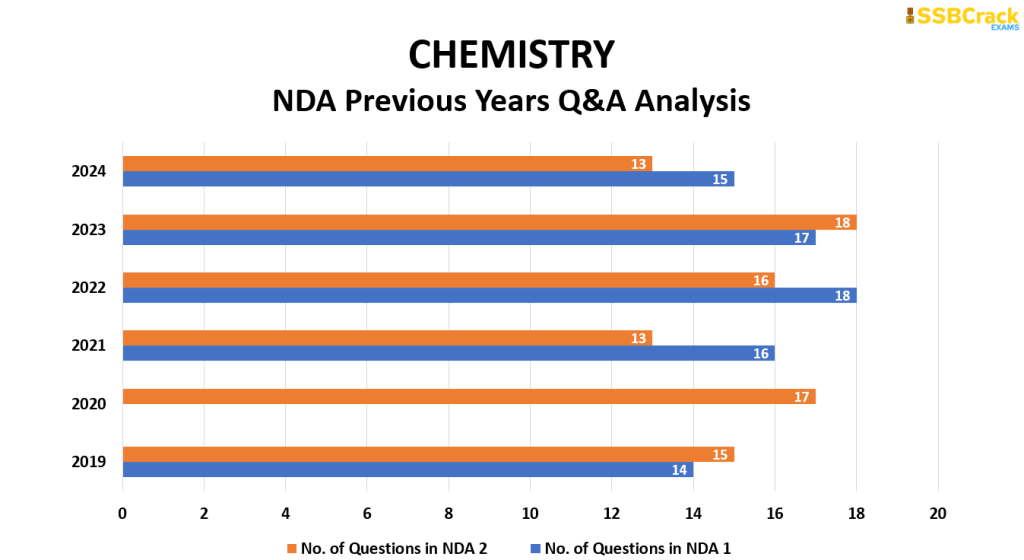




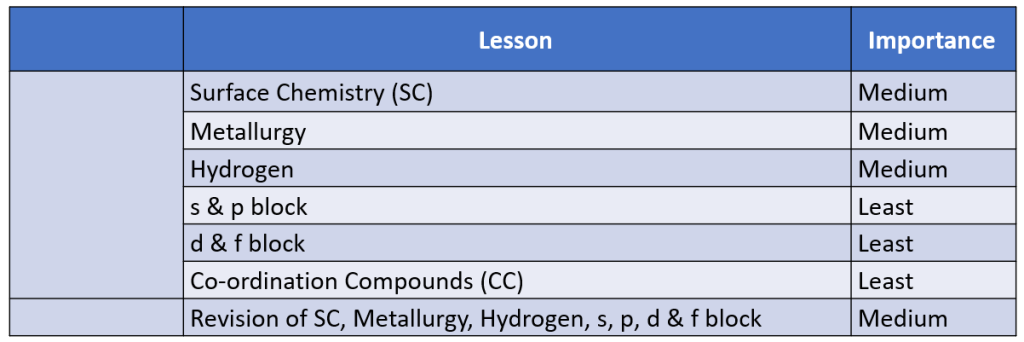


1. Analyzing Previous Year Question Papers
Previous year question papers are a goldmine of information for NDA aspirants. They provide insights into the exam pattern, the types of questions that are likely to be asked, and the level of difficulty. For Chemistry and Biology, analyzing these papers holds particular importance for several reasons:
- Familiarity with the Exam Format:
- Previous year question papers help students understand the structure and format of the NDA exam. Chemistry and Biology questions often follow a consistent pattern, and familiarity with this can greatly reduce anxiety on exam day. Aspirants get a feel for the variety of question types, such as conceptual questions, numerical problems, and fact-based inquiries.
- Identifying Key Focus Areas:
- By going through multiple years of question papers, aspirants can spot recurring themes or topics. For instance, certain topics like chemical bonding, organic chemistry, and human physiology are often given more importance. Knowing this allows students to prioritize these areas in their study schedule.
- Understanding the Difficulty Level:
- NDA exams are known for their moderate to high difficulty level, especially in the science sections. By reviewing past papers, students can gauge the complexity of questions and adjust their preparation accordingly, focusing on mastering concepts rather than rote memorization.
- Time Management:
- Practicing with previous year papers enables aspirants to develop the ability to manage their time effectively. Students learn how to allocate time to each section and avoid spending too much time on difficult questions, which is crucial given the time constraints of the NDA exam.
2. Understanding the Weightage of Topics in Chemistry and Biology
Every topic in Chemistry and Biology does not hold the same weightage in the NDA exam. Some topics are asked more frequently than others, and understanding this distribution can give aspirants a significant edge. In the Study Plan and Analysis classes, we have thoroughly analyzed the weightage of different topics, helping students focus on high-yield areas. Here’s why understanding topic weightage is so critical:
- Strategic Prioritization:
- Chemistry and Biology cover a vast syllabus, but not all topics carry equal importance in the exam. For example, in Chemistry, topics like atomic structure, chemical bonding, and thermodynamics typically carry more weight compared to others. In Biology, areas like human anatomy, genetics, and ecology are often given priority. Understanding which topics carry more marks allows aspirants to concentrate their efforts on mastering these high-yield areas.
- Efficient Use of Study Time:
- NDA aspirants are often balancing multiple subjects, including Mathematics, General Knowledge, and English, along with Chemistry and Biology. Knowing the weightage of topics helps students make the most efficient use of their study time. For instance, if a topic in Biology has consistently carried more marks over the years, students can dedicate more time to that topic, ensuring a better return on their study investment.
- Focused Revision:
- As the exam date approaches, revision becomes critical. With an understanding of topic weightage, aspirants can focus their revision on the most important areas, ensuring that they reinforce their understanding of topics that are more likely to appear in the exam. This focused revision helps improve retention and boosts confidence.
- Improved Performance in the Exam:
- By studying smart and focusing on high-weightage topics, students increase their chances of performing well in the Chemistry and Biology sections. A targeted approach helps minimize the risk of surprises in the exam and ensures that aspirants are well-prepared to answer the most frequently asked questions.
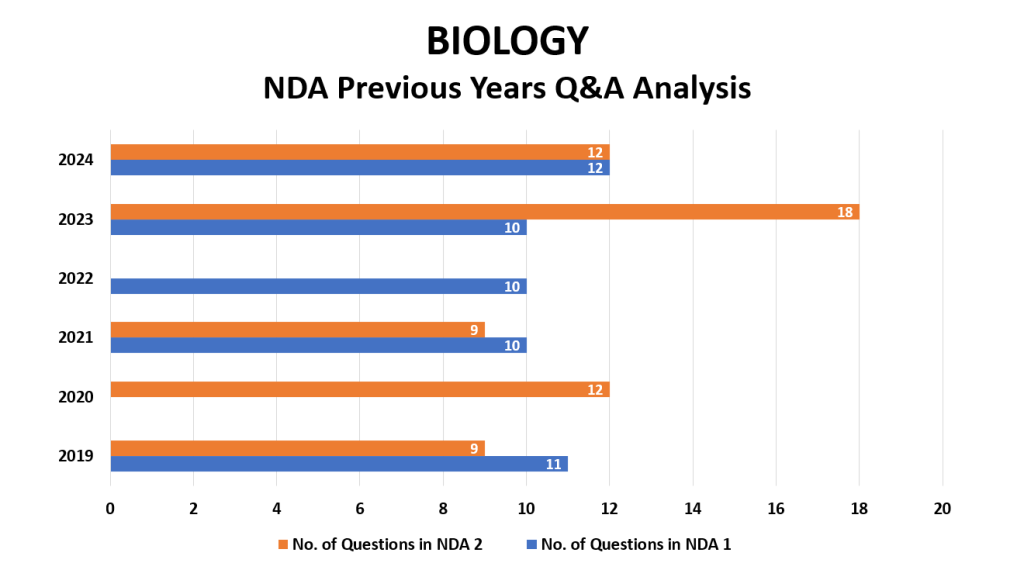
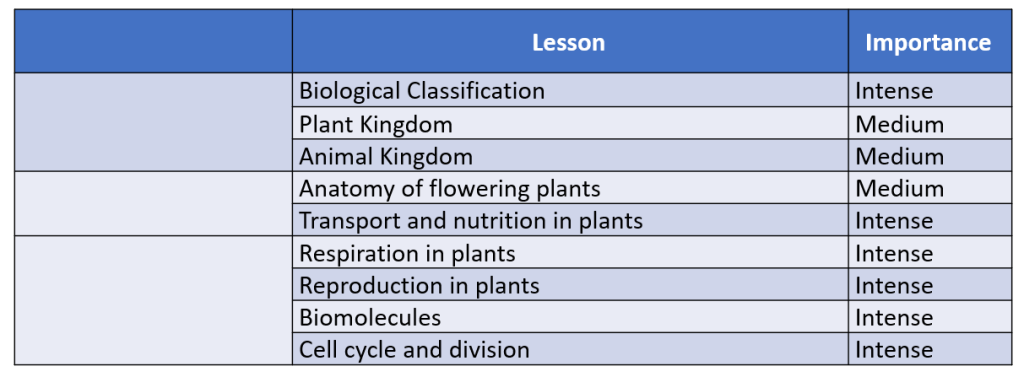
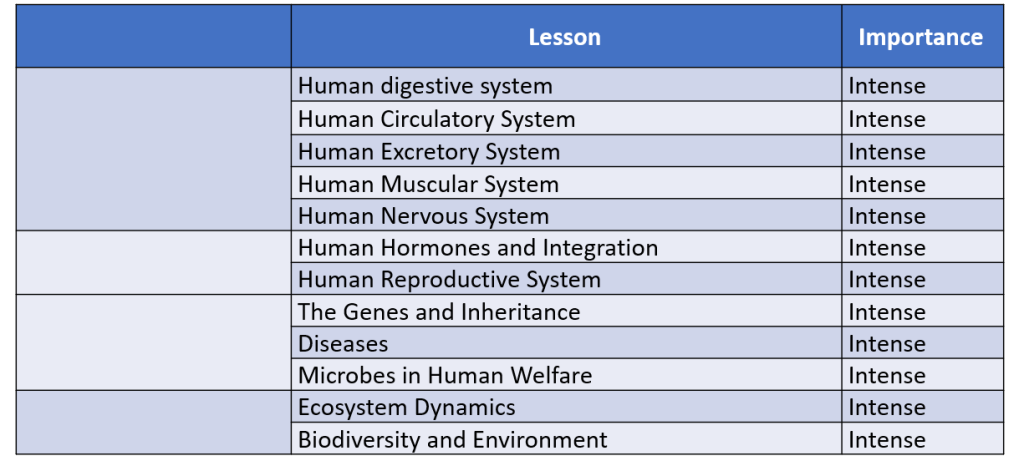
3. Integrating Analysis and Weightage in Your Study Plan
For NDA 1 2025 aspirants, the combination of previous year question paper analysis and understanding topic weightage forms the backbone of an effective study plan. Here’s how to integrate these elements:
- Create a Topic-Wise Schedule:
- Based on the analysis of previous papers and topic weightage, create a study plan that allocates more time to high-weightage topics. For example, if organic chemistry consistently carries more marks, schedule extra time for practicing reaction mechanisms and problem-solving.
- Practice with Purpose:
- Use previous year papers not just for practice, but also as a diagnostic tool. Identify your strong and weak areas, and adjust your study plan accordingly. Aim to solve at least 5-10 previous year papers under exam-like conditions to sharpen your skills.
- Regular Revision of Important Topics:
- High-weightage topics should be revised regularly to ensure mastery. Use flashcards, summaries, and mind maps to reinforce your understanding of key concepts in Chemistry and Biology.
- Track Your Progress:
- Regularly assess your progress by solving mock tests and comparing your answers with previous year solutions. This will give you a clear idea of how well you are prepared for the actual exam.
Conclusion
For NDA 1 2025 aspirants, preparation for Chemistry and Biology is not just about covering the entire syllabus but about studying smart. Analyzing previous year question papers and understanding the weightage of topics are two powerful strategies that can enhance your preparation and increase your chances of success. By focusing on these aspects, you can streamline your study plan, concentrate on high-yield topics, and walk into the exam hall with confidence.
Make the most of these insights and tailor your preparation accordingly. With consistent effort, strategic planning, and an understanding of exam trends, you can excel in Chemistry and Biology, paving the way for your success in the NDA 1 2025 exam.







